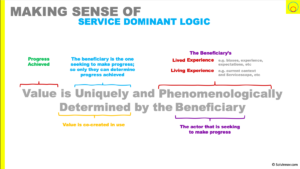As service is the basis of exchange, then all economies are service economies. But how do we account for the classic view of their being agricultural, goods and service economies?
We look at the skills and resources that society saw as the most beneficial to apply and improve. These turn out to be the skill and resources of: cultivation, mass production, management, and resource integration.
And the "shift to the service economy", often talked about today, is society beginning to see the skills of resource integration as most beneficial.






